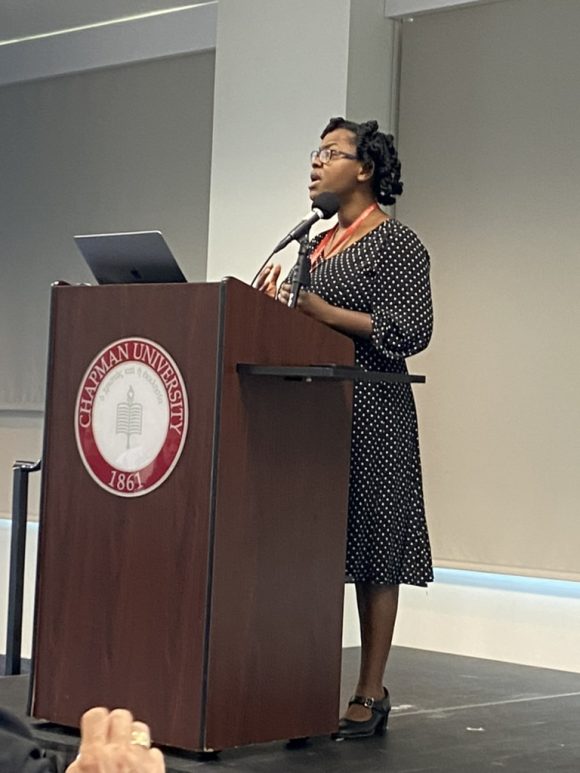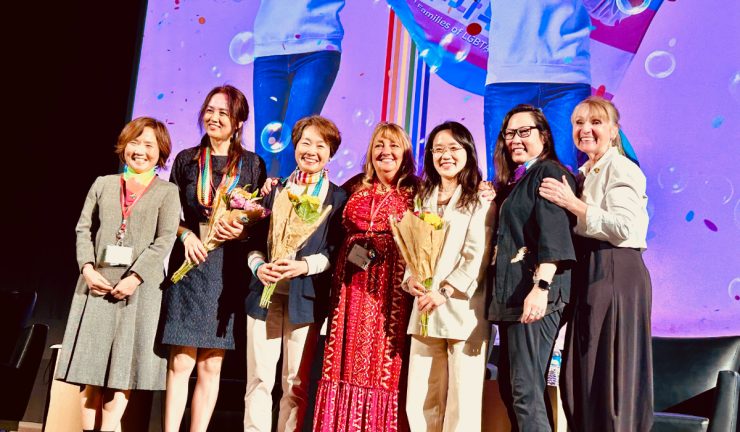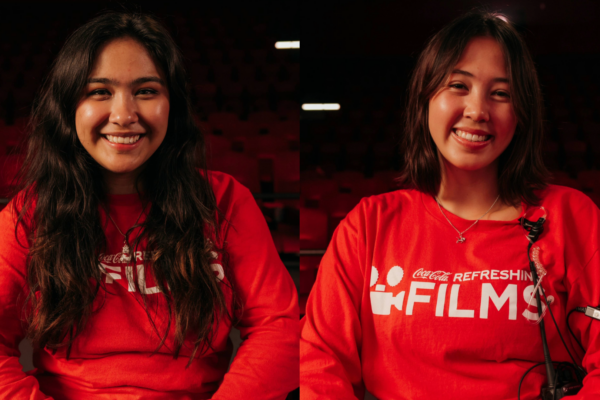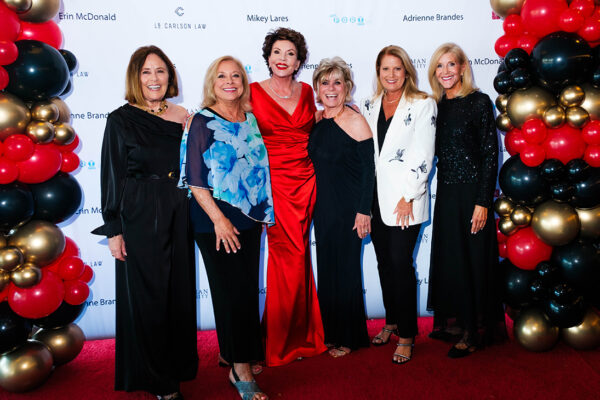Once a year, everyone takes a pause to acknowledge all the work done by mothers – in our families, homes and communities. But for a group of faculty and students at Chapman University, simply celebrating mothers is not enough. Instead, they hope to challenge the very definition of motherhood.
Inspired by conversations about the unacknowledged labor that women and mothers assume – a burden that became even more apparent during COVID-19 shutdowns – and by recent debates concerning reproductive rights, professors from Wilkinson College of Arts, Humanities, and Social Sciences and Dodge College of Film and Media Arts collaborated to bring a discussion of motherhood to Chapman. Their coordinated efforts included a spring semester course on the topic and a three-day conference in April that brought leading scholars in the discipline to campus.
Challenging the Motherhood Myth
Co-taught by professors Nam Lee and Jan Osborn, the “Representations of Motherhood in Contemporary Literature and Film” course examined how motherhood is represented in contemporary literature and film, exploring narratives that both embraced and challenged what they call “the motherhood myth.”
“In the motherhood myth, the term ‘mother’ is a role, and once you become ‘mother’ that’s what you become. This is an institutionalized concept,” said Osborn, professor of English. “The biological mother is often isolated, made to feel that she’s responsible for the children. That’s her role, and that’s what she does. But ‘mother’ as a verb shifts that paradigm. Mother is action, and all of us can mother.”
“It’s not the biological identity of a mother – being the woman who gave birth – but anybody who takes care of the child,” said Lee, associate professor of film and media studies.
“It’s an action. It’s a way of being in the world. And it isn’t relegated to women, nor to one woman alone in any one family,” Osborn said.
Class Studies Narratives of Motherhood
While students scrutinized texts with academic rigor, classes were often emotional as participants discussed motherhood through the lens of their own experiences.
“We talked about our own experiences in our family and how everyone came from different ethnic groups, different backgrounds, different countries, and how that’s reflected in the presentations,” said Manjima Tarafdar, whose research on Rituporno Ghosh’s 2002 film “Titli” helped her understand Bengali constraints on motherhood and how her own mother has already tried to subvert those limitations. “It really helps me understand my mother and the entire world better.”
Tarafdar, a graduate student in film and media studies, appreciated the culturally diverse approach of the class.
“A lot of the scholarship dealt with people of color. It was not a binary approach to a single form of motherhood. But we read about motherhood throughout the world and its depiction and how … motherhood has been changing drastically, and the approach to motherhood studies is also changing.”
Conference Welcomes Community Participation
Organized by professors Stephanie Takaragawa and Julye Bidmead along with Lee and Osborn, the three-day “Motherhood to Motherhoods: Ideologies of ‘The Feminine” conference was conceived with the intention of deconstructing “the patriarchal mother as a biological and essential category” through an examination of art, literature, film and social institutions. Along with panel discussions and academic presentations on women’s labor and health, gender identity issues and the ideological construction of motherhood, the conference included a series of workshops intended to draw a wider community into the conversation.
“We knew that we wanted to go beyond the typical academic conference and get the community involved,” said Bidmead, a professor of religious studies and the director of the Center for Undergraduate Excellence.
Workshops focused on wellness and health, including exploring motherhood through forms of art, design, writing and dance.
“We also made sure that we said everywhere that children and families were welcome … which is very unusual for any academic conference. We let them know where the lactation stations were on campus, things that show the support for women and motherhood,” Bidmead said.

The keynote speakers were Janice P. De-Whyte, associate professor of religion at Loma Linda University, and Andrea O’Reilly, professor of gender, sexuality and women’s studies at York University in Toronto. O’Reilly also responded to the presentations made by Osborn and Lee’s students during the conference.
The weekend culminated in a screening of “Coming to You,” a 2021 Korean documentary that tells the story of two Korean mothers as they journey with their queer and trans children’s identities, and eventually become activists for LGBTQ+ causes. The film was followed by a discussion with director Byun Gyuri and the two mothers, Nabi and Vivian.
“During the film and during the discussion there was not a dry eye in the house. Everybody felt connected to these stories,” said Takaragawa, professor of sociology. “There was so much honesty, and just positiveness. The optimism of how they’re going to do this and what they have to do for their kids, even though it was a struggle for them to come to terms with … I thought that was really compelling. The fact that the Q&A went on for over an hour and no one left after watching the film is a good indication. People spent three and a half hours with us just on this one event.”




